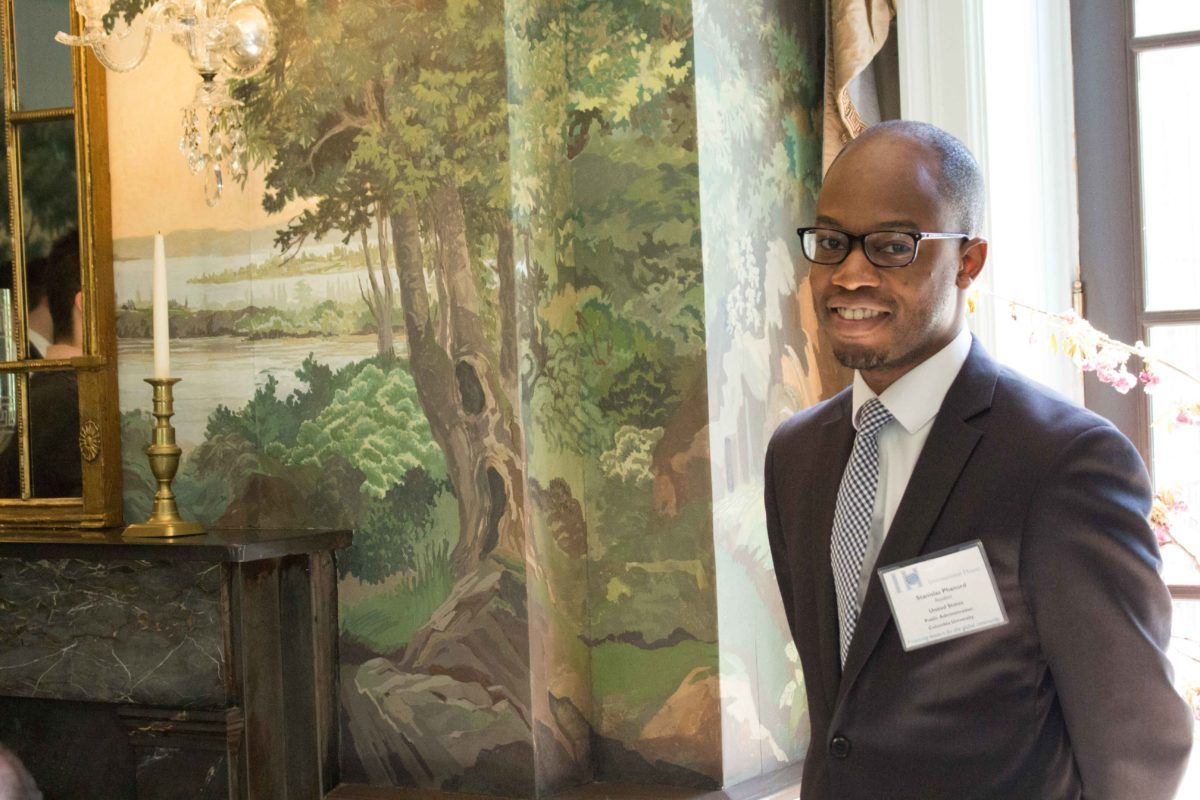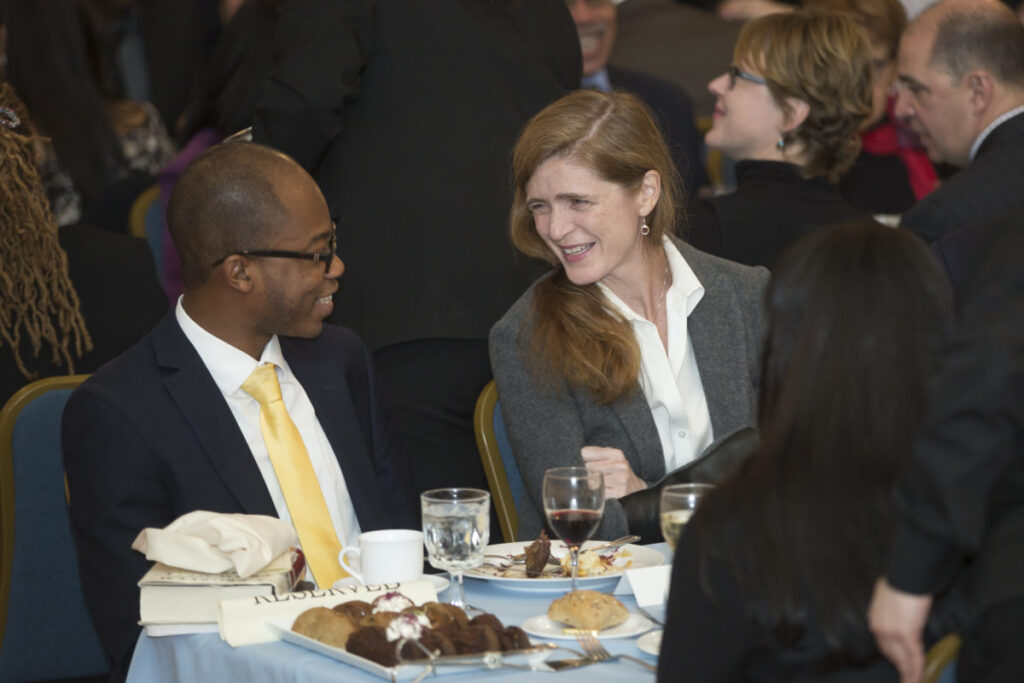
Taking Lessons on Diversity and Inclusion to the World
“By being at I-House, I’ve gained the ability to explain both American culture and American shortcomings to an international audience in a succinct, easy to digest way that doesn’t judge others for not knowing and makes it open for dialogue. I’ve been happy to educate, as well as to be educated, by my peers.”
A few months ago, I was heading home after a long day of work in Chelsea. As I stood in front of the uptown 1 train—the one that many I-House Residents rely on to be infuriatingly delayed and finicky—I heard a familiar chuckle. I turn around and see my good friend and I-House neighbor, Stanislas Phanord. He had just finished his first day of work at Civic Hall, a startup networking facilitator for civic technology.
Anyone who knows Phanord will always recognize his friendly smile, his eloquence and humility—and if the day’s right, a really nice suit. In fact, just a few months later, during International House’s traditional Candlelight Sunday Supper, he was suited up again, this time to accept the I-House Presidential Cup Award as an outstanding Resident and Program Fellow.
While his impact on the International House community has been significant and inspiring, his commitment to diplomacy and the journey he took to get there is even more impressive.
Phanord was born in Haiti and moved to Boston when he was three years old. While in college, his 12-year-old brother had gone back to Haiti to visit family. During that time, their mother passed away and his brother ended up stranded in Haiti for a year and a half.
“I had to figure out how to get him back. I worked with a lawyer, who contacted the US Embassy there and soon enough, a diplomat facilitated my brother’s return to the States,” he says. Two weeks later, the 2008 Haiti earthquake hit. “Without that diplomat, I probably wouldn’t have seen my brother again.”
Phanord soon developed an interest in diplomacy and the impact it could have on a person-to-person level. He found his hometown of Boston to be homogeneous in terms of ethnic profile and viewpoint, so he decided to seek opportunities to learn more about other cultures. With a major in political science and an international politics concentration, secured his first internship at the Center for Security Policy in Geneva, Switzerland.
There he worked under three department heads doing security research. One project focused on global security threats, another on climate change issues, and the last on issues in North Africa. “The best experience was helping out with UN peacekeeping training, which made me think this might be a career I was interested in.”
From there he won additional internships and fellowships, including a Fulbright in France teaching English in the suburbs of Paris. This started a chain of cultural immersions that allowed him to practice a new language: French.

Though most of his travel covered Francophone countries, Phanord always made sure to stay open-minded. Even during his three years at I-House, he has found that his social groups have been diverse in race, culture and perspective. “I-House has been great in that way because I get to hang out with people from all over the world,” he notes. “Even though I’ll specialize in specific regions, I definitely believe those experiences are going to carry into my diplomatic career.”
On graduating from Columbia’s School of International and Public Affairs in May 2017, Phanord will take a permanent position as a US Diplomat working in government-to-government relations. He was offered the job before the 2017 US Presidential election, and is often asked by fellow I-House Residents how he feels about working as part of the new administration. “Regardless of who’s in office, this is the career I’ve always wanted and I’ll be able to serve my country,” he says. “To me, American values tend to stay the same, in terms of promoting democracy, human rights and freedom of speech, so I’m definitely still excited.”
For most entry-level diplomats, the first work they’ll do is a consular tour, specifically working as a Visa officer. As Phanord contemplates his future in diplomatic corps, he always comes back to the experience with his brother and the diplomat who facilitated his return.
“My brother was safely returned to the States under the purview of a consular officer, so it’s an important role. By working on American citizen services, I’ll get to help reunite families with their loved ones or help organize [a deceased person’s] body to be sent back to the States to their family for burial. It’s a personal interaction that can help ensure someone’s life is kept in check.”
Eventually he hopes to work on other issues, as well. Right now, he sees two American values that are currently struggling on the international stage: diversity and inclusion. Through his experiences at I-House he is excited to work on these themes, being sure he will engage lessons in intercultural sensitivity he gained as a Resident.
“At I-House, I’ve loved the conversation events, like the talk with [Korean-American comic book artist] Greg Pak or the immigration lawyer from the ACLU. It’s important, especially now, to have events that focus on navigating social and political issues.”